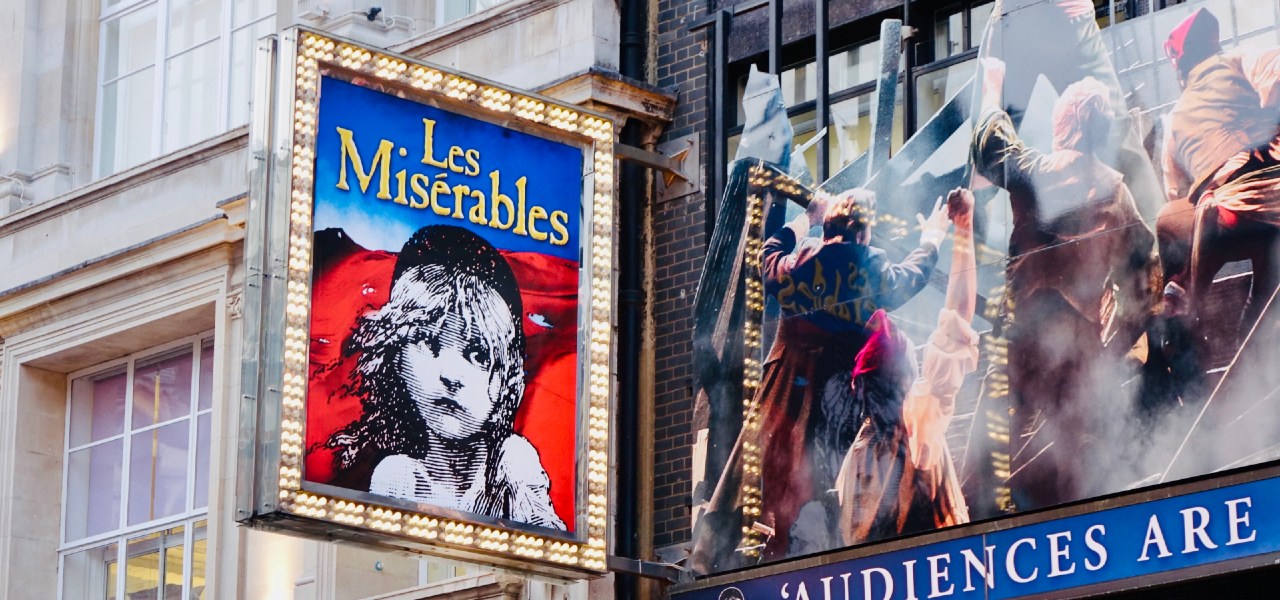
How do I choose the best seats in a London theatre?
08/11/2025 11/11/2025 Matthieu B.

Whether you're a theatre aficionado or this is your first time, choosing a seat is never easy. This is even truer if you want to book a musical in London: you need to know how to decipher theatre vocab. And it's not always obvious! In this article, I'll give you some top tips for choosing the best seats in London West End theatres.
How do I reserve seats for a London musical?
The easiest way to book a musical or show in London is to visit London Musicals. With transparent ticket prices, it's probably the best site for online bookings.
Choose between matinees and evening performances
Depending on your schedule, it can be hard to see a show in afternoon. Some people also prefer going to the theatre in the evening. However, it's sometimes worth checking out matinees. This is the name given to early afternoon showings which often start at around 2.30pm (typically on a Wednesday and Saturday), rather than at 7.30pm. Because there's a later performance, you'll often find that matinees have better availability and a better choice of seats.
Take the theatre's architecture into account
Depending on how the theatre hosting your chosen musical was built, its architectural style, seating plan and seat direction can differ. A theatre like the Prince of Wales Theatre (The Book of Mormon) has stalls and a balcony, as well as boxes at the side. However, Her Majesty's Theatre, home to The Phantom of the Opera, has stalls and three balconies!
A little dictionary of London theatre vocab
- Balcony: Third balcony
- Grand Circle / Upper circle: Second balcony
- Royal Circle / Circle: First balcony
- Stalls: Ground level (also called the Orchestra)
- Stage: The stage
- Restricted view: Reduced view due to pillars or being on the end of a row, causing blind spots
Generally, a theatre is organised in the following way: Stage, Stalls, Circle, Grand Circle and Balcony. But once again, it depends on how the theatre was built. The St. James Theatre only has Stalls and has no balconies.
Tips for choosing good seats
The best seats, but also the most expensive, are obviously the Stalls. You're in the front rows, at the same level of the stage, which gives you a great view and hear the singers and orchestra well. The first block of rows are generally the very best seats. Then, behind this block, are a second block of seats. You're still at stage level but further back, so have slightly less good visibility.
Some people don't like being this near a loud orchestra and prefer the first balcony (Royal Circle or Circle). These seats also offer perks: you have some height, giving you a better view of the whole stage, the set and how the actors move.
The second balcony (Grand Circle/Upper circle) gives you even more height, often giving you a bird's eye view of the stage. If you're afraid of heights, it's better to avoid these seats, even if they're less expensive. In the first rows, you'll have a good view of the stage in its entirety. However, as you get further back in the balcony, the view becomes less good.
Generally, you want to choose the most central seat possible so that you avoid blind spots which can occur at the end of rows. Most of the action will unfold in the middle of the stage, meaning a central seat can give you a view of the whole stage and not miss any of the show. It's better to avoid seats at the end of the rows, unless you need to stretch your legs or go to the toilet frequently. Finally, if you're short or don't have great eyesight, we recommend avoiding choosing a seat at the back of the balcony or the stalls.
Ultimate tips
- If you have the choice of a seat at the back of the first balcony or the first few rows of the second balcony, take the first rows of the second balcony. You'll often have a better view and sometimes pay less! A seat in the first row of the second balcony is often the same distance from the stage as a seat in the middle of the first balcony, but you avoid having people sitting in front of you.
- The theatre ushers may seat you a little closer to the stage than your tickets say if they know some seats haven't sold.
- If despite your best efforts you're only able to get a seat very far from the stage, you can bring small theatre binoculars. You can rent them in some theatres and they'll be located between seats of on the back of the seats in front of you.